#psychological idea
Explore tagged Tumblr posts
Text
“In the war film, a soldier can hold his buddy—as long as his buddy is dying on the battlefield. In the western, Butch Cassidy can wash the Sundance Kid’s naked flesh—as long as it is wounded. In the boxing film, a trainer can rub the well-developed torso and sinewy back of his protege—as long as it is bruised. In the crime film, a mob lieutenant can embrace his boss like a lover—as long as he is riddled with bullets.
Violence makes the homo-eroticism of many “male” genres invisible; it is a structural mechanism of plausible deniability.”
–Tarantino’s Incarnational Theology: Reservoir Dogs, Crucifixions, and Spectacular Violence. Kent L. Brintnall.
#Another day another quote that's been rattling around in my head for an age#Which again sums things up better than I ever could#And of course it's not just about the physical deterioration at the end of the story allowing for intimacy#The idea permeates the whole show#Tozer holding Heather as his exposed brain freezes on the deck#Crozier and Hickey reaching a state of psychological intimacy but only through the violence of the lash#You could argue a link between Hickey and Goodsir too through the intimacy and violence inflicted on Irving#Both his killing and his autopsy#The Terror#The Terror AMC#Meta
40K notes
·
View notes
Text
Word List: Psychology

more psychological concepts as reference for your poem/story
Absent grief - a form of complicated grief in which a person shows no, or only a few, signs of distress about the death of a loved one. This pattern of grief is thought to be an impaired response resulting from denial or avoidance of the emotional realities of the loss.
Being love - (or B-love) in Abraham Maslow’s humanistic psychology, a form of love characterized by mutuality, genuine concern for another’s welfare and pleasure, and reduced dependency, selfishness, and jealousy. B-love is one of the qualities Maslow ascribes to self-actualizers.
Cyclopean eye - a theoretical eye, located on the midline between the real eyes, that has access to the functions of both eyes and is used in descriptions of space perception and eye movements.
Dream ego - in the analytic psychology of Carl Jung, a fragment of the conscious ego that is active during the dream state.
Epiphany - a sudden perception of the essential nature of oneself, others, or reality.
Family mythology - the shared stories, norms, and beliefs within a family system. The mythology can be used to deny trauma or pathology within the family or to ascribe meaning to events in ways that suggest their inevitability or importance.
Guilt culture - a trend or organizing principle in a society characterized by the use of guilt to promote socially acceptable behavior. Guilt cultures emphasize both self-control in the face of temptation and self-initiated responsibility for one’s actions if transgressions should occur.
Hedonic treadmill - a metaphor for a hypothesis proposing that people’s happiness tends to return to a preexisting baseline level after positive or negative life events have occurred. According to this concept, positive and negative events may produce short-term shifts in mood, but these shifts tend to erode in a relatively brief period of time. This process of adaptation is thought to be responsible for the persistence of mood states over time, often in the face of considerable efforts to change them. Although there is good evidence for this hypothesis, research has demonstrated that people do not always return to baseline after the occurrence of mood-changing events.
Jactitation - (or jactation) extreme restlessness marked by frequent movements and tossing about.
Leaving the field - the act of removing oneself from a situation when confronted with seemingly insurmountable obstacles, insoluble conflicts, or intensely frustrating problems. It may involve physical withdrawal, escape into psychogenic illness, or some other behavior, such as distraction or changing the subject during a conversation.
Source ⚜ More: Notes & References ⚜ Part 1 2 3 ⚜ Writing Resources PDFs
#writing notes#psychology#character development#writeblr#dark academia#spilled ink#literature#writers on tumblr#writing reference#writing prompt#poets on tumblr#poetry#creative writing#novel#lit#light academia#writing ideas#writing inspiration#character building#federico zandomeneghi#writing resources
1K notes
·
View notes
Text
Butterflies
So this is more of a psychological thriller/ horror idea. In short a person goes to sleep one day and finds that when they dream of the past they wake up in that past as the present. They are able to jump from one period to the next from whenever they remember. the problem is when they start trying to “fix” or change the past and go back to the present. in it they find everything is constantly changing so they try to put everything back but it all goes wrong and they eventually end up having to settle on a reality they are not familiar with because they don’t know how to get back to the original present.
#thriller idea#horror idea#psychological idea#dream18writer#adopt a story#time travel#butterfly effect#move idea#story idea
0 notes
Text
The dynamics between Dan, Danny and Ellie are so funny to consider. Danny is far too used to handling Sam and Tucker at their worst and now he has an additional gremlin duo who picked up whatever madness was in Vlad's system when he decided cloning was a great idea. (Danny is highly aware that it is not a good thing to have more him in the world and has resolved to better avoid clone plots). Meanwhile Dan and Ellie will fight over the most random, inane things, but the minute it's about family they band together into a proper terror and the only beings able to stop them are Jazz in her disappointment if the situation calls for it, and sleep deprived Danny who does not realize his exhausted presence is like a terrifying parental figure catching their kid doing something stupid.
It gets even funnier when Jazz finally breaks out of the mindset that she needs to be in charge and instead enjoys herself, and so the only leash for the three most feral Fentons (honorary and named) is a perpetually tired teen/young adult.
Now drop that in Gotham.
#danny phantom#dc comics#danny fenton#jazz fenton#dan phantom#ellie phantom#dpxdc#batman#most of this idea isnt even involving the vigilantes but just the fenton family causing chaos by being over eager and excited#the fenton parents have been dealt with and vlad is in a corner getting psychiatric help#danny is just in gotham for a college thing to see if its worth the very decent scholarship#jazz is on a year break amd was travelling but danny made the mistake of mentioning what college he had applied at#dan is following jazz because the last time jazz was left alone she nearly incited an incident due to psychological analysis#ellie is following dan because she likes to annoy him#its just jazz bouncing around and interviewing rogues for a full three days#danny was busy with the college thing for the first two#dan and ellie were chasing jazz around when they realized danny was busy#the third day is a joker attack and he takes jazz#dan and ellie would have done something but danny found out first#and now theyre following like meep puppies while danny tracks her down#sees a clown#beats him to a pulp
583 notes
·
View notes
Text
this just in: danny fenton is just as much of a mask as Brucie Wayne? - another danyal al ghul au
Turns out, being placed in a civilian family who have no knowledge of your background is actually detrimental to the health and development of a child assassin due to lack of proper support! Surrounded by strangers in a foreign city, Danyal Al Ghul does as assassins do best. He hides. Espionage is one of many teachings one learns in the League, and it only takes half a day for Danyal to construct a new persona to hide behind: Daniel Fenton.
By the time dinner rolls around, Danyal al Ghul is safely and securely tucked behind the face of Danny Fenton; brand new adoptive child of the Fenton family who came from overseas. A shy, quiet little boy with a thick accent and curly hair, with brown skin and blue eyes, and an avid interest in the stars. The best fictions are always cobbled together in a little bit of truth, it's some of the only truth he ever lets through. He apologizes in a meek voice for his behavior early, he didn't mean to be rude, and he watches the three of them eat it up with coos.
Lies roll like silk against his lips, he struggles to meet their eyes and offers them his weakest, shyest smile. It's too easy. It's easy to go from there.
Danny Fenton, adoptive son, shy and awkward and unconfident but friendly. Who struggles in his classes and isn't the brightest, but tries his hardest. He makes bad jokes and has a quick tongue and a sarcastic mouth. He wants to be an astronaut. He's got the best aim in school, and is a terrifying dodgeball player. He's one of the least athletic kids in his grade.
It's like playing two truths and a lie, but there's only one truth, and the rest are lies. It's easy to pretend when he knows it's insincere.
Danyal Al Ghul, grandson to the Demon Head. Deadly, trained assassin. Has spilled blood, has had blood spilt from. Environmentalist, animal activist. He loves the stars. He owns a calligraphy set. A sharp tongue, an even sharper blade. He's clever, quick-witted, he would be top of his grade if he tried harder. He purposely doesn't.
He misses his family. He misses his mother, and he misses his brother. Mother visits a few times a year, so few times that he can count it on both hands. He cherishes every visit, as brief as they are. It helps remind him who he is.
Sam and Tucker are Danny's best friends. They've never met Danyal, but Danyal's met them.
It becomes routine to become Danny Fenton. As familiar and as easy as pulling on a shirt in the morning. Danyal wakes up and is always first to the bathroom in the mornings; stares at himself in the mirror until he can finally see Danny staring back at him. At night, he locks his door and sheds the mask.
Dying throws a wrench in his mask; splits a crack straight through the porcelain. He's able to smooth it over with sandpaper and liquid gold, but it's a little hard keeping his ghost form under wraps. It instinctively wants to shift to show his true self. Danyal can't have that, he's spent four years as Danny Fenton, he'll spend another four as him as well. Even if the feeling of the hazmat suit in his ghost form feels restrictive, like a too-small shirt suctioned to his skin that needs to be peeled off.
He'll live. Er-- well, you know what he means. It's frustrating however, trying to keep his Danny Fenton mask up even as Phantom - fighting in the air is something he needs to get used to, and the sudden propping of powers throws him off. But he is nothing if not adaptive, and he hates that he needs to slow his own skills down in order to keep pretenses up in front of Sam and Tucker.
The first time Danyal summons a sword when he's alone, is one of the few times Danyal gets to grin instead of Danny. He's fighting Skulker, and from an invisible hilt he draws a katana from thin air. It startles them both. Skulker takes a step back at the smile that spreads across his face.
They're both silent as Danyal examines his new sword.
"Do you know what people like me do to people like you, poacher?" Danyal finally asks him, the accent he began to hide a few months in slipping through. He drops all pretense, dragging the flat end of the blade slow and appreciatively against his palm. It's a good make, and when he cuts it through the air, it slices through like butter. He looks up at Skulker with a smile; "are you ready to find out?"
When Sam and Tucker ask about why Skulker seems so skittish around Danny now, Danny shrugs at them and says with a playful smile; "I don't know, I guess I kicked his butt too hard after our last fight." and he watches as Sam rolls her eyes exasperatedly, and Tucker snickers with his own joke.
By the time he reunites with Damian before their 15th birthday, Danyal is buried beneath so many layers of Danny Fenton that his brother will need a shovel to dig him out. He's not sure what he'll find.
#dpxdc#danny fenton is not the ghost king#dp x dc#dpxdc crossover#dp x dc crossover#danyal al ghul au#danyal al ghul#dpxdc prompt#dpxdc au#dc x dp crossover#dp crossover#demon twins au#so turns out putting an assassin child in a normal family does not actually fix the child. it may just make them worse. had this thought#today and had to extrapolate. i have a whole ass post in my drafts explaining my idea for this lmao. my thought was basically:#'damian would be the better off twin because he'd have actual proper support compared to danny bc the bats know damian's background and +#+ as a result can actually address the league's teachings properly and help him dismantle the lessons that have been ingrained in him +#+ as compared to danny who would be with a random family - regardless of affiliation - who would only be able to help with surface level +#stuff if danny even ever lets them see that. danny would need to dismantle his own mindset on his own if he even thinks he has to.'#jazz is not a reliable or licensed therapist. that is a child. she's not even implied to be a good one. psychoanalyzing people doesn't make#you a good therapist. it just means you can psychoanalzye people. and therapy only works on those who think they need it. danny would not#think he'd need it and any attempts from jazz to psychoanalyze him would just result in him shutting her out and doubling down on his belie#tldr: starry made another au exploring the psychological effects of growing up in the league and he calls it:#'whose the more adjusted twin? Damian or Danny? Lmao Damian ofc. Danny got screwed over'#rip to damian you have your work cut out for you trying to peel back all of your brother's protective layers. that's an iceberg waiting to#be explored. o7 to you champ your brother got the short end of the stick. danny has so many things to unlearn that i didn't go into here#its an actual demon twins au too! would ya look at that.
990 notes
·
View notes
Text
The damsel in distress slowly starts getting more and more unstable from the unaddressed trauma of being frequently kidnapped. One day they completely snap and the villains start being found mysteriously murdered with increasing brutality.
#It's common to portray a damsel's kidnapping as no big deal a mild annoyance thats joked about between both heros and villains#Thats if it's not used to set up a romance between the damsel and villain#I'm not complaining but irl kidnapping is the most traumatic thing a person can go though and involves sa 99% of the time#I just wish the damsel in distress trope was taken seriously more often#writers on tumblr#writing#writeblr#creative writing#writing prompt#writing inspiration#damsel in distress#psychological whump#emotional whump#trope deconstruction#villains#damsel to badass#story prompt#story ideas#story inspiration#story inspo#writing inspo#writing ideas
703 notes
·
View notes
Text
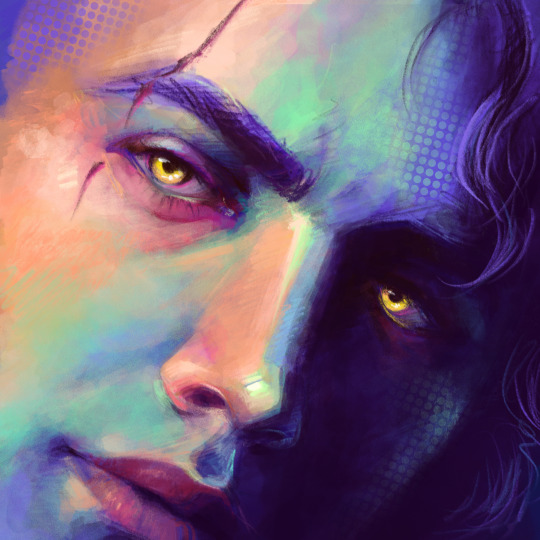
"If you stare into the abyss,
the abyss stares back at you."
#yes it's happening I'm officially falling#magnusbae dutifully keeps feeding me star wars content. entertaining my brainworms. fuelling the obsession.#i passed the point of no return a long time ago and I can't really complain XD#hehe also me sneakily posting this while magnusbae already sleeps (magnusbae if you found this - good morning! <333)#also also I have no idea what was I cooking here but I was cooking alright#that's the Wednesday painting during psychology lessons behaviour - no clue where I'm going with the painting. only vibing#ok so#mayhem art#anakin skywalker#star wars anakin#star wars#sw#anakin art#anakin fanart#anakin skywalker art#anakin skywalker fanart
1K notes
·
View notes
Text
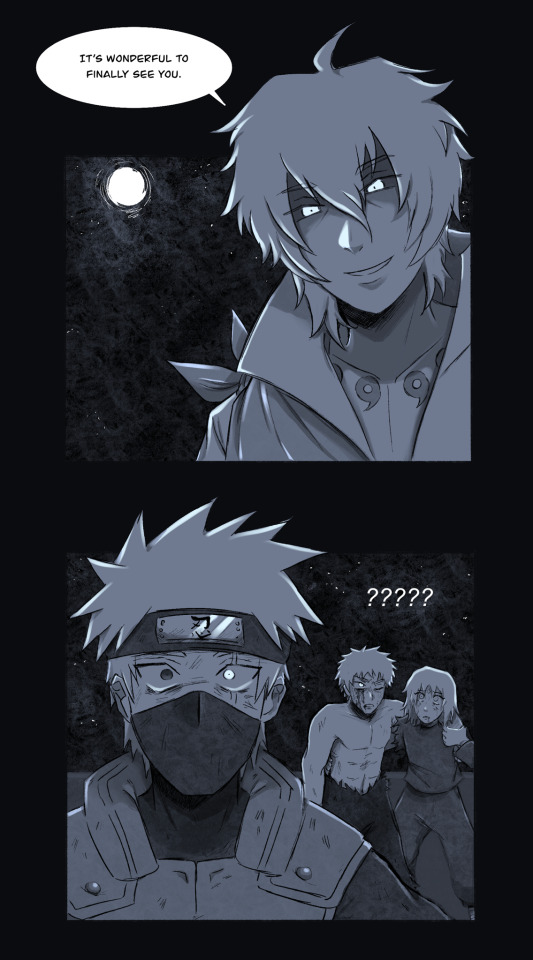
Another Otsutsuki?!
we’re messing up the timeline for this one. (I lost this crack idea but then it came back… the abyss stare back and I jumped in.)
anyways, now some kids meeting the new kid
Panel 1: There’s something wrong here.
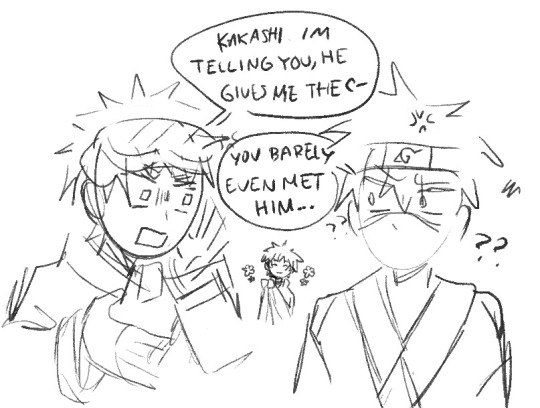
Comic 1: Attention.
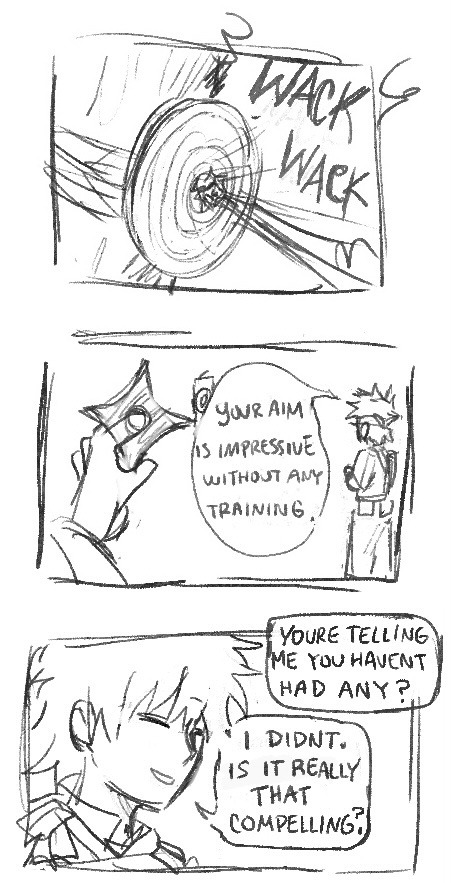
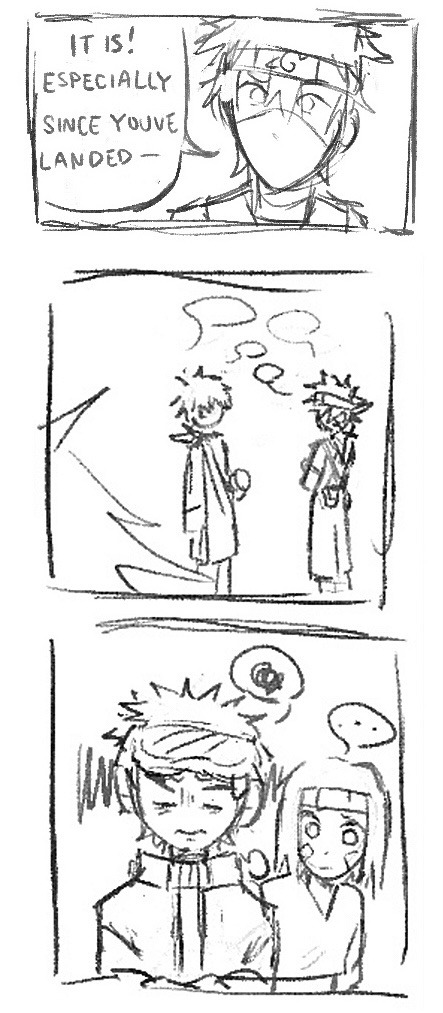
they’re both in the same boat
Comic 2: Day Off (with confusion.)
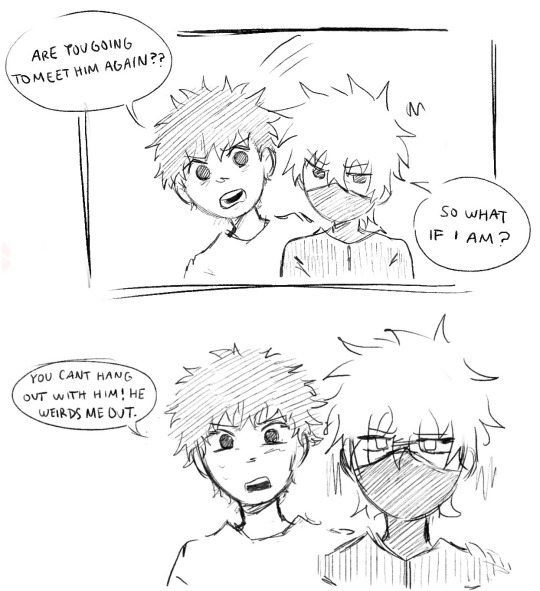
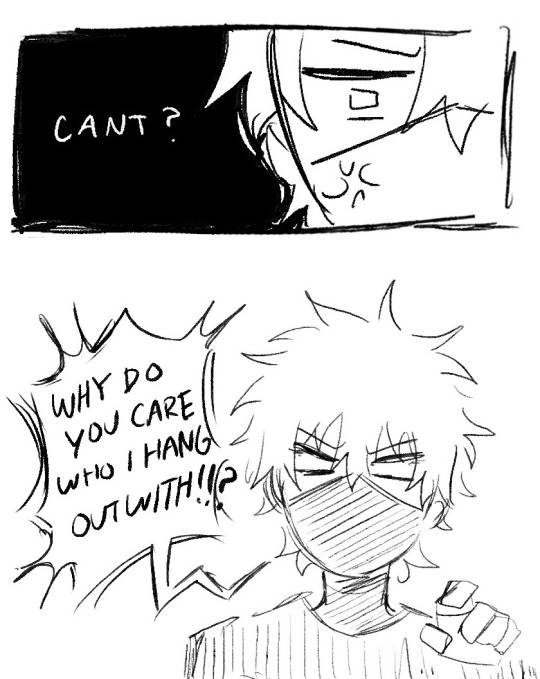

he just a little insecure,, (kakashi still told him to get it together)
back to the future now
Comic 3: What. (huh?)
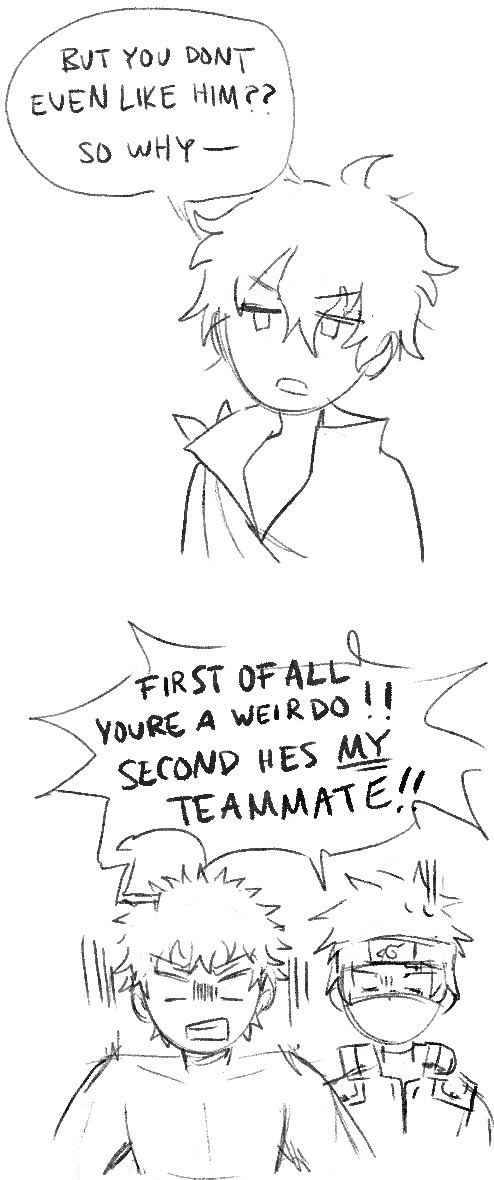
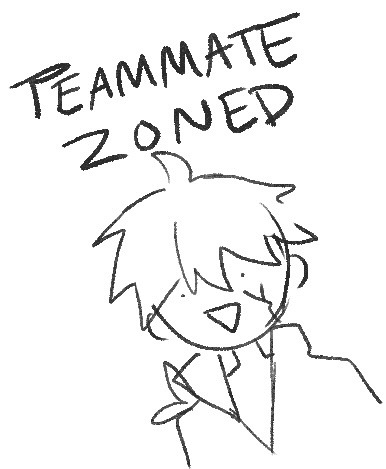
Panel 2: very tiny.
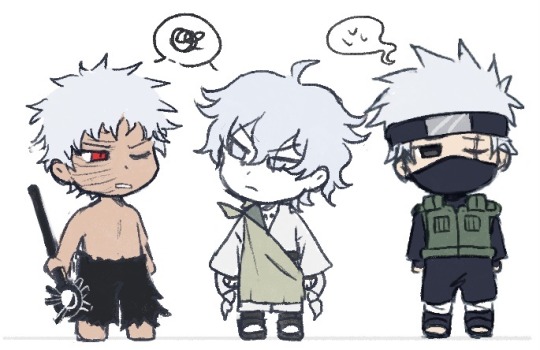
#naruto#naruto fanart#kakashi hatake#obito uchiha#rin nohara#toneri otsutsuki#fanart#art#my art#sketch#drawing#digital art#creating silly posts pumps my brain#kid obito had immediately had distrust of the new kid#and couldn’t even explain why so he stood there glaring#obito looks at kakashi 20 years later after Toneri admits defeat with “I TOLD you he’s was weird“#kakashi after getting back to earth promptly puts obito in jail#ALSO when I saw Toneri for the first time his design is so neat!#I haven’t watched the movie so I read the description of the guy to have an idea of him#what I got is that Toneri is unhinged too ANYWAYS moving on#Toneri ends up noticing Kakashi white chakra and follows him with curiosity#Kakashi’s ends up choosing not to be jerk lets him stick around as long as he isn’t in the way#toneri takes a bit of insult because even if he’s missing eyes he’s definitely not weak#so showing some skills without destroying his disguise he ends up impressing kakashi#while kakashi talks with him and offering advice and asking him if he wants yo try anything else#he doesn’t know but Toneri immediately in his mind claims kakashi has his#this post could’ve absolutely gone from silly to psychological horror#like real quick haha#imagine the joke was just kakashi going through more issues 😭 the punchline is that there isn’t one
568 notes
·
View notes
Text
“we sent yuan away so his feelings could subside” you sent him to gay rizz bootcamp is what you did
#watching this as it airs week to week is torture but it also means more free time to be generate shitposts and be unwell#i like to think that the new york gays welcomed him with open arms#'oh he learned about the 21-day habit theory at college' that man majored in IT or game design.#if he studied psychology he would know that theory is a busted myth#the queer club on the other hand was just throwing ideas at him left and right#mutuals feel free to ignore this one#unknown 2024#unknown the series#taiwanese bl#CJ's edits
809 notes
·
View notes
Text
cw: abuse and trauma and other unsavory things

interesting character backstories
because "my parents hit me or force me to be perfect" won't cut it for every character in the cast

-characters who grew up poor. poverty is traumatizing, people. i wanna see characters who never ask for anything, count dollars and coins, freak out when the bill isn't split fairly and immediately suspect bed bugs when someone says they're itchy. and mention the ugly stuff too. smelling bad and having water stains on the walls. ice cream for dinner and not eating breakfast. lights going out and fourteen year olds supporting a family of five.
-characters who were neglected. not physically abused, neglected. who don't understand why people care when they don't show up, or seem kind of down today, or leave a party without saying goodbye. who are too independent for their own good. who can't think of anything to say when asked to describe their parents. who are okay with being lonely. who always feel lonely. who get uncomfortable if you even ask them how their day was. who does that?
-characters who were smothered. who were treated like a toddler well into their teens. who were practically stalked by their own parents, never allowed a moment of privacy. who were constantly belittled and denied their autonomy as the adults in their life made every decision for them. regardless of how loved they truly were, this is abuse. this could go in two diverging directions: end result of a very guarded, mature character feeling a constant need to prove themself, or end result of a passive, immature character who requires attention, praise and constant assistance. both have extremely low self-esteem.
-characters who are fundamentally different from their family. maybe they're queer, or adopted, or disabled, or aren't fully related to the rest of them (bonus points if they aren't the same race as their family). characters who watch like a ghost as everyone else smiles and bonds. and maybe it's their fault that they're like this, or maybe it's their fault for not reaching out to the family themself, but... nobody else had to ask for it.

i forgot about this blog
#writeblr#writers on tumblr#writing#writing prompt#writing stuff#character ideas#writing ideas#creative writing#writing prompts#original character#character backstory#character backstories#character background#character psychology#character building#backstories
258 notes
·
View notes
Text
I guess this might be why the UK seemed to go so antisemitic so quickly
I'm researching the 1947 pogroms in the UK. (Actually, I'm researching all the pogroms and massacres of Jews in the past 200 years. Which today led me to discover that there were pogroms in the UK in 1947.)
From an article on "The Postwar Revival of British Fascism," all emphasis mine:
Given the rising antisemitism and widespread ignorance about Zionism [in the UK in 1947], fascists were easily able to conflate Zionist paramilitary attacks with Judaism in their speeches, meaning British Jews came to be seen as complicit in violence in Palestine.
Bertrand Duke Pile, a key member of Hamm’s League, informed a cheering crowd that “the Jews have no right to Palestine and the Jews have no right to the power which they hold in this country of ours.” Denouncing Zionism as a way to introduce a wider domestic antisemitic stance was common to many speakers at fascist events and rallies. Fascists hid their ideology and ideological antisemitism behind the rhetorical facade of preaching against paramilitary violence in Palestine.
One of the league’s speakers called for retribution against “the Jews” for the death of British soldiers in Palestine. This was, he told his audience, hardly an antisemitic expression. “Is it antisemitism to denounce the murderers of your own flesh and blood in Palestine?” he asked his audience. Many audience members, fascist or not, may well have felt the speaker had a point. ...[The photo of two British sergeants hanged by the Irgun in retaliation for the Brits hanging three of their members] promptly made numerous appearances at fascist meetings, often attached to the speaker’s platform. In at least one meeting, several British soldiers on leave from serving in Palestine attended Hamm’s speech, giving further legitimacy to his remarks. And with soldiers and policemen in Palestine showing increasing signs of overt antisemitism as a result of their experiences, the director of public prosecutions warned that the fascists might receive a steady stream of new recruits.
MI5, the U.K. domestic security service, noted with some alarm that “as a general rule, the crowd is now sympathetic and even spontaneously enthusiastic.” Opposition, it was noted in the same Home Office Bulletin of 1947, “is only met when there is an organized group of Jews or Communists in the audience.”
The major opposition came from the 43 Group, formed by the British-Jewish ex-paratrooper Gerry Flamberg and his friends in September 1946 to fight the fascists using the only language they felt fascists understood — violence. The group disrupted fascist meetings for two purposes: to get them shut down by the police for disorder, and to discourage attendance in the future by doling out beatings with fists and blunt instruments. By the summer of 1947, the group had around 500 active members who took part in such activities. Among these was a young hairdresser by the name of Vidal Sassoon, who would often turn up armed with his hairdressing scissors.
The 43 Group had considerable success with these actions, but public anger was spreading faster than they could counter the hate that accompanied it. The deaths of Martin and Paice had touched a nerve with the populace. On Aug. 1, 1947, the beginning of the bank holiday weekend and two days after the deaths of the sergeants, anti-Jewish rioting began in Liverpool. The violence lasted for five days. Across the country, the scene was repeated: London, Manchester, Hull, Brighton and Glasgow all saw widespread violence. Isolated instances were also recorded in Plymouth, Birmingham, Cardiff, Swansea, Newcastle and Davenport. Elsewhere, antisemitic graffiti and threatening phone calls to Jewish places of worship stood in for physical violence. Jewish-owned shops had their windows smashed, Jewish homes were targeted, an attempt was made to burn down Liverpool Crown Street Synagogue while a wooden synagogue in Glasgow was set alight. In a handful of cases, individuals were personally intimidated or assaulted. A Jewish man was threatened with a pistol in Northampton and an empty mine was placed in a Jewish-owned tailor shop in Davenport.
And an important addendum:
I've read a whole bunch of articles about the pogroms in Liverpool, Manchester, Salford, Eccles, Glasgow, etc.
Not one of them has mentioned that the Irgun, though clearly a terrorist group, was formed in response to 18 years of openly antisemitic terrorism, including multiple incredibly violent massacres. Or that it consistently acted in response to the murders of Jewish civilians, not on the offensive. Or that at this point, militant Arab Nationalist groups with volunteers and arms from the Arab League countries had been attacking Jewish and mixed Arab-Jewish neighborhoods for months.
I just think the "Jewish militants had been attacking the British occupiers" angle is incredibly Anglocentric.
Yeah, they were attacking the British occupiers. But also, that's barely the tip of the iceberg.
Everyone involved hated the Brits at this point. If only al-Husseini and his ilk had hated the Brits more than they hated the Jews, Britain could at least have united them by giving them a common enemy.
#jewish history#jumblr#fascism#antisemitism#when anti-zionism IS antisemitism#seriously if you declare that something is never ever antisemitism we know you're writing yourself a blank check to be antisemitic#like. you may not consciously be aware of it#but the more you're emotionally invested in the idea that anything said or done in the name of anti-zionism isn't antisemitic#the more you will ignore or fail to notice or outright defend things that other anti-zionists do that ARE antisemitic#not to mention things that YOU do or say or believe that are antisemitic#especially because most people aren't very aware of the details of different antisemitic tropes#you're not an expert on what is antisemitic and why to begin with and now you're buying into a belief that muffles your perception of it#and gives you motivation to disbelieve and deny it#and there's already psychological motivation to disbelieve and deny it when it's coming from you or your peers or people you admire#and then there's the belief that jews just cry antisemitism to silence valid criticism#aka the exact thing that we always say marginalized groups don't do. and that it's offensive to claim marginalized groups do. that one.#the entire discourse has been set up to protect and propagate antisemitic beliefs from the start#which is not particularly progressive nor is it necessary if you actually want to support palestinians but go off etc#wall of words
295 notes
·
View notes
Text
I don't think this contains spoilers but if you don't want to hear any book references or season 3 speculation be warned.
Reading the interview clip where Sam Reid said that Lestat is ripped from the stage by Magnus is wild because we know he knows the books, that's not how it happens there, so he's maybe let Rolin's version slip. Which, if holds true, would be a seismic change. Instead of being torn from Nicki's arms while they sleep, Lestat would be taken during a performance, in front of an audience. Surrounded by humanity, by those he loves, but not a soul can save him. The one place that brought him joy would now be connected to the trauma of Magnus and his turning. If he truly is going to be the catalyst for the theater becoming hunting grounds in the show, for better or worse, it would seem to be related to this change as well. Also, his rockstar moment would have a desperation to it that reflects the books but is tragic in its own way. It would all become devastating in a subtly different way than how Rice wrote it. Even events that only happen in the show would have a different impact. Like Armand first approaching him telepathically while he was on stage would now seem cruel and calculated, and later choosing to put the trial on stage. Sorry about the ramble but it blows my mind how much a small change, changes so much. The murder of the opera singer...the mocking of the Dracula film...the baby on the Mardi Gras float...would all feel different.
#iwtv#interview with the vampire#amc iwtv#lestat de lioncourt#louis de pointe du lac#armand#iwtv rambles#oh my god him first telling Louis he most fears being alone while they're at the theatre#the look the gentle reach for Louis hand#I guess the stage & acting was already connected to Magnus and his turning what with the stalking it would just have a very#different emotional subtext having the abduction happen in front of a crowd vs from his bed#half-asleep even Nicki wasn't sure what had happened in the book#but now it would become a public horror and not a private one.#where in the book he hides what's happened here he would have to immediately perform “human” because everyone would've seen something#or completely embrace being a monster and so maybe the creation of the tdv becomes his idea#maybe it wouldn't change the narrative much but at the least the emotional/psychological ripple to me seems seismic#it touches everything
196 notes
·
View notes
Text
Writing Reference: Grief

“Grief is the emotional reaction to a loss, in this case, to death” (Samuel, 2019, p. xvii), and mourning is the process of adjustment to a world without that person.
The following physical sensations and perceptual experiences often accompany the grieving process (modified from Worden, 2009):
Hollowness in the stomach
Tightness in the throat and chest
Being oversensitive to noise
Feelings of unreality
Shortness of breath
Muscle weakness and lack of energy
Dry mouth
Strong emotions typically occur during grief, including (from Worden, 2009):
Sadness. Failure to acknowledge and embrace sadness can cause more complicated and prolonged grief.
Anger. A common reaction to loss that leads to many issues during the grieving process.
Guilt and self-reproach. Often regarding something that happened or was neglected at the time of death.
Anxiety. Ranging from feelings of insecurity to panic attacks, sometimes associated with fears of being unable to take care of yourself in the absence of the other person.
Loneliness. The loss of a day-to-day relationship can leave someone feeling all alone. Social support can help but does not remove the sense of a broken attachment.
Fatigue. Feelings of apathy and listlessness are not uncommon following the death of a loved one and may limit behavior and activity.
Helplessness. Survivors can be left feeling vulnerable and helpless, especially when they have young children to look after.
Shock. Sudden death, by its very nature, can cause the survivor to experience shock.
Yearning. Yearning or pining for the loved one is a typical reaction to death, and as it reduces, may indicate the mourning process is coming to an end.
Emancipation and relief. It is not uncommon for a survivor to experience a sense of relief, especially where the deceased was oppressive or was suffering a prolonged illness. While a normal response, it may be accompanied by feelings of guilt.
Numbness. While the previous feelings are common, so too is an absence of emotions, at least initially. With so many feelings to experience and manage, the early stages of grief may be overwhelming and result in a protective numbness.
It is important to note that each person’s experience of grief is different, and while the emotions above are typical of loss, they are not exhaustive.
Types of grief can take various forms, including (Elizz by SE Health, 2019; CaringInfo, n.d.; WebMD, n.d.):
Abbreviated grief. A short-lived response to a death, possibly following the experience of prolonged anticipatory grief or something immediately filling the space left by the loss.
Absent grief. The bereaved may not acknowledge or may remain in denial of what has happened. If prolonged, the lack of response can be concerning and require specialist support.
Anticipatory grief. For a caregiver, grief can begin before the person being cared for dies. It may be associated with a sense of losing what they expected life to be like. Such feelings can start with a terminal diagnosis or a worsening state of health.
Chronic grief. A sub-type of complicated grief (see below), left untreated, chronic grief can involve extreme feelings of hopelessness, a sense of disbelief, and a loss of meaning, leading to severe clinical depression or thoughts of self-harm and even suicide.
Collective grief. A shared experience of grief that affects a family, group, or community, often preceded by an event (natural disaster or attack).
Complicated grief. Where grief seems to deviate from what’s expected, complicated grief interferes with the ability to function. Complicated grief may include chronic (see above), delayed, or absent grief (American Psychological Association, n.d.).
Cumulative grief. Multiple deaths over a period of time can leave the bereaved without the opportunity or capacity to process each loss.
Delayed grief. Grief may not occur immediately after losing a loved one but may be postponed until another significant event occurs, resulting in what may seem an excessive response to the present situation.
Distorted grief. An extreme form of complicated grief exhibited as self-destructive behavior, anger, guilt, or hostility toward others.
Disenfranchised grief. When others do not recognize the importance of the loss, such as the death of an ex-partner, pet, or colleague. Society may consider the loss as minor or not legitimate.
Inhibited grief. Grief may not always be outwardly visible; it may result from a conscious effort to maintain privacy or keep emotions hidden from close friends or family.
Masked grief. Atypical physical symptoms and behaviors can be a response to grief without being attributed to the loss.
Normal grief. While there may not be a ‘typical’ grief shared by everyone, normal grief is considered to be when emotional intensity surrounding the death gradually decreases or basic daily activities begin to return to normal.
“We need to learn to support a healthy grieving, and to help people to understand that each person goes at their own pace” (Samuel, 2019, p. XX).
The treatment given to those attempting to process grief must be specific to the individual and their experience. The following approaches overlap and complement one another in supporting the bereaved (modified from Worden, 2009).
Helping the survivor actualize loss
When and where did the death occur?
What happened?
How were you told and where were you?
Visiting the grave can also make the loss more concrete.
Helping the survivor identify and experience feelings
Many feelings may not be recognized or felt to their full degree during intense grief. It is essential to help survivors experience the following:
Anger – arising from feelings of frustration and helplessness.
Guilt – for what the bereaved did and did not do to affect the outcome (usually irrational).
Anxiety and helplessness – feelings of helplessness can leave the bereaved unsure if they can survive alone and concerned about their own mortality.
Sadness – it can be challenging for many to show their upset in front of others. Crying can be helpful if associated with an awareness of what was lost.
Assisting living without the deceased
What problems are you facing, and how can they be resolved?
It is important to neither rush the bereaved to make decisions nor encourage a sense of helplessness, but instead communicate that they will be able to make decisions when they are ready.
Helping find meaning in the loss
Why did this happen?
Why did this happen to me?
How has this loss changed me?
Allowing for individual differences
No two people grieve in the same way; the process and feelings associated with loss are unique. There is tremendous variability in the following:
Intensity of affective reactions
Degree of impairment
Length of time it is experienced
Source ⚜ Bereavement ⚜ Notes & References ⚜ Writing Resources PDFs
#grief#writeblr#writing reference#psychology#character development#dark academia#poets on tumblr#writers on tumblr#characterization#spilled ink#writing prompt#words#literature#poetry#langblr#writing inspiration#creative writing#fiction#writing ideas#anthony van dyck#writing resources
451 notes
·
View notes
Text
The act of creation is an attempt to enter a mysterious realm. A longing to transcend. What we create allows us to share glimpses of an inner landscape, one that is beyond our understanding. Art is our portal to the unseen world.
Rick Rubin
#rick rubin#rubin#quotes#philosophy#wisdom#life#literature#writer#books#psychology#write#art#artist#idea#ideas#creation#creating#create
947 notes
·
View notes
Text
i doubt this will ever reach the person it's intended for but i do want to point out that lewis very much lost the psychological battle to jenson button. and he did so because jenson was nice. that tall british rodent man (affectionate) showed up at mclaren and was kind and polite to his engineers and mechanics and lewis lost his fucking mind. tweeted out his telemetry. had a full twitter can't believe he unfollowed me i thought we were friends but i guess not meltdown only to realise that jenson never followed him in the first place. got so upset by the team having the audacity to like jenson that he spent an entire year driving into felipe massa. i don't think that would ever happen now, even when he lost to george he didn't give a fuck. but it is important to me that people know lewis has absolutely lost psychological battles before in situations when it was in no way personal. him losing the fight with nico was not just because they'd known each other since they were 12, it was also because lewis is paranoid as fuck and has a history of taking things incredibly personally
#i want to be clear that this is not criticism of lewis#but the idea that he only lost to nico because nico made it personal is incredibly frustrating to me#lewis is not the emotionally well adjusted man that you think he is and he never has been#his psychology has absolutely allowed him to win as much as he has#because it has provided an almost unmatched drive#but he has his flaws and his weaknesses#and they are not inherently connected to nico and their shared past
427 notes
·
View notes
Text
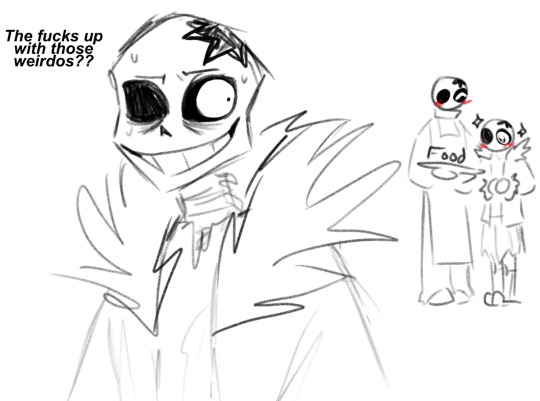
How many people witnessed softie food addict horror who needed something in his mouth or he would actively kill and turn to cannibalism 🧍♀️ or was that just me.... anyways honestly it was silly.. he'd maybe get along with cook horror... I just like fanon crossovers guys*sadge
Anyways canon horror is also silly(really silly. What an asshole, man)(no seriously he's actually such an asshole.. I might love him for that but-) I don't think he would get along with the others(loser)
#me when I acknowledge as many sides of an argument as possible which just makes me confused because I am trying to take off of other people#but they're so diverse that I can't mix all of it and so I don't know how to interpret any characters anymore and what makes it worse is my#ahh not actually understanding people or relationships because I got minimum emotions maximum carelessness but I also love emotions so I#love the psychological torture of all of this but I also don't understand it so I'm depending on everyone else but yet again they're so#mixed I get confused and I don't know how to deal with any of it so I'm just here standing confused screaming in my own mind as I try to#understand how to make it all work together and then#....#Jesus fuck#sans au#utmv#undertale au#horrortale#horror sans#UwU#anyways disregard any ideas I may have ever because they will always change and I don't know what to do anymore.......#bro I'm boutta resort to Wattpad fics.... get ready for Wattpad highschool fic😼/j#I want to do that but I lost my fluidity in writing sighs...#I never graduated from Wattpad sorry guys😔#I didn't do that well drawing canon horror tbh but it'll have to do
288 notes
·
View notes